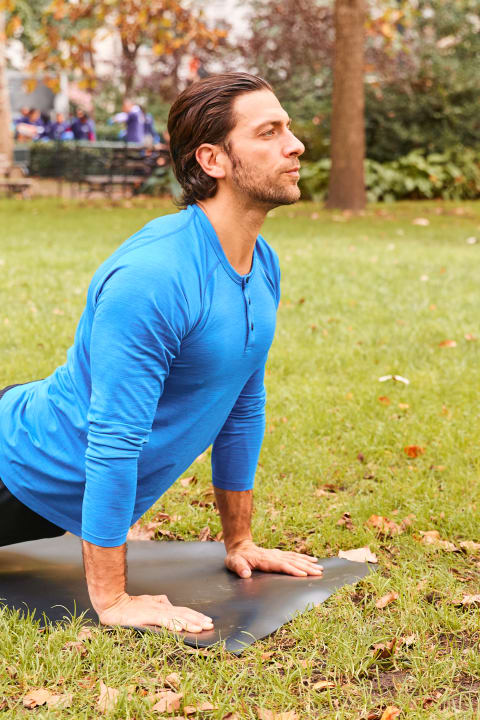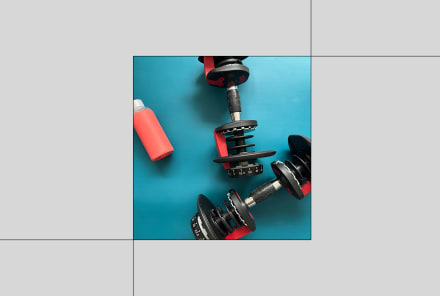Advertisement
This Fitness Pro's 8 Secrets To Recovering From Any Workout

In this day and age, everyone seems to be tuning in to the value of a good workout—sometimes two or three a day. As a trainer, it’s a beautiful thing to log into my social media feeds and see so many people working out and reaping the benefits of exercise.
However, I’ve noticed that we tend to overlook the fact that recovery is just as important as exercise in your training routine. Exercise puts stress on our muscles, and recovery gives our bodies time to adapt, repair, and rebuild. Just busting your butt in the gym is not enough. Building recovery time into any training program is essential if we want to replenish our energy and repair damaged muscles.
Here are eight recovery components to ensure all the hard work you’re putting in the gym is paying off:
1. Sleep.

Sleep is the most important part of recovery. It allows our bodies to adequately recuperate from the physical and mental demands of intense training. But sleep and sleeping right are two different things. Most athletes require at least six to eight hours of deep, restful slumber, and the right mattress can help them get it. Essentia mattresses are a go-to for my best night’s sleep. The most important aspects that set the Essentia mattress apart from other mattresses is that it sleeps cool naturally and won’t stimulate your central nervous system. This creates the perfect environment for optimal recovery. The fact that the Essentia mattress is backed by clinical studies in regards to recovery and more specifically, athletic recovery, is a big plus as well.
2. Nutrition.
You can't outwork a bad diet, making nutrition essential to proper training and recovery. Athletes should approach food as fuel for the body. Now, I’m not saying you need to totally reframe the way you eat, but a clean and balanced diet is best for increasing rest, recovery, and performance. A balance of protein and carbs is best for aiding recovery and building muscle post-workout.
3. Mobility.

Mobility is necessary to moving well and pain-free, and a lack of mobility limits your ability to get the most out of your training. Practicing stretching and mobility work during recovery will allow you to find those tight spots and work through them.
4. Massage.
While getting a massage may sound like an indulgence, it’s actually an investment in your training routine. Massages have been proved to reduce inflammation, improve blood flow, and reduce muscle soreness. Intense exercise is important, but we must take some time for ourselves as well!
5. Balance and stability.

With that being said, the ability to move is not always enough. We need to move efficiently. The body must be strong enough to hold up under tension and movement. Using rest days for gentler stability exercises, such as restorative yoga, is a great way to stabilize the core and balance the body and the mind. After all, if you can’t concentrate or your head is in the wrong place, you cannot maximize your training.
6. Sauna/steam room.
Heat also helps soothe and heal the body, and hitting up the sauna is one of the most relaxing things you can do after a workout. It’s a great way to sweat out the toxins of a long weekend or cheat day as well.
7. Active recovery.

Rest and recovery have sometimes been used interchangeably, but they are not the same thing. Just because you have a rest day doesn’t mean you have to stop moving. Active recovery can be anything done at an easy or low intensity that keeps blood flowing to your muscles. On my rest days, I love getting outside, going for a hike or a long walk, and taking a long bike ride to soak up that vitamin D.
8. Cold plunge.
This happens to be one of my favorites! There are so many benefits of a dip in a cold bath after a long workout. It increases circulation, brings more red blood cells to the muscles, and reduces inflammation. Cold baths have even been shown to promote fat loss in some cases.












